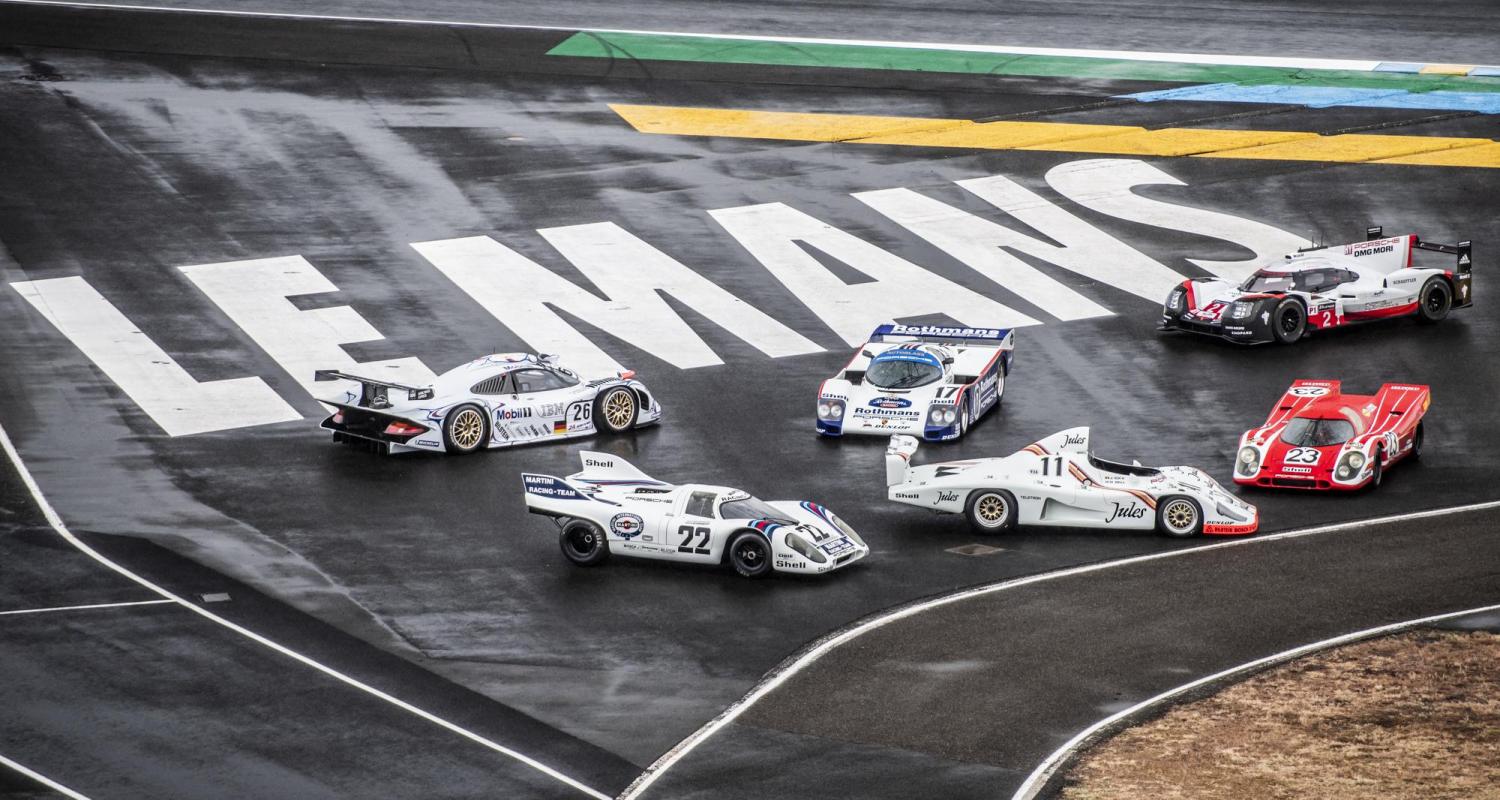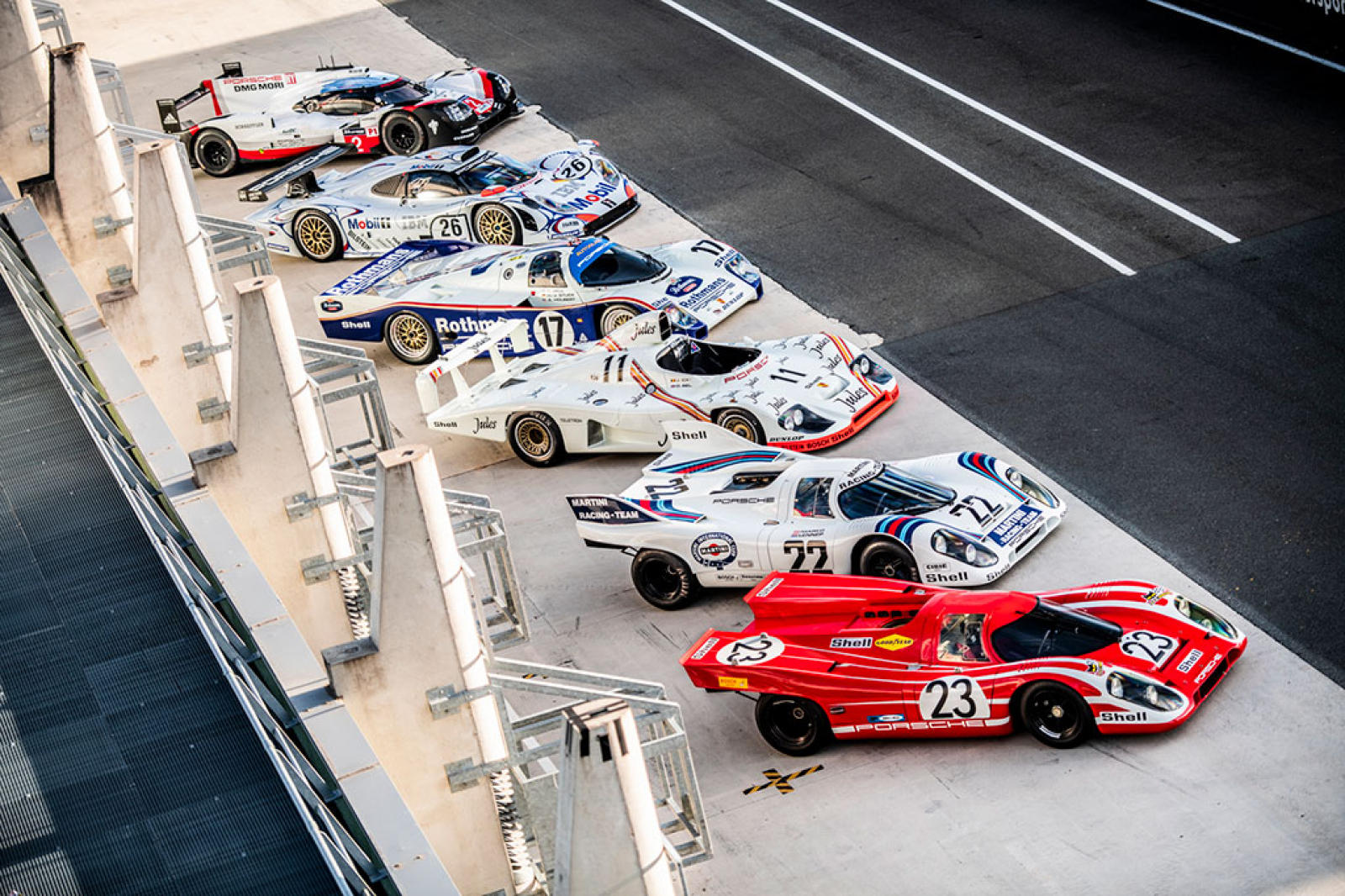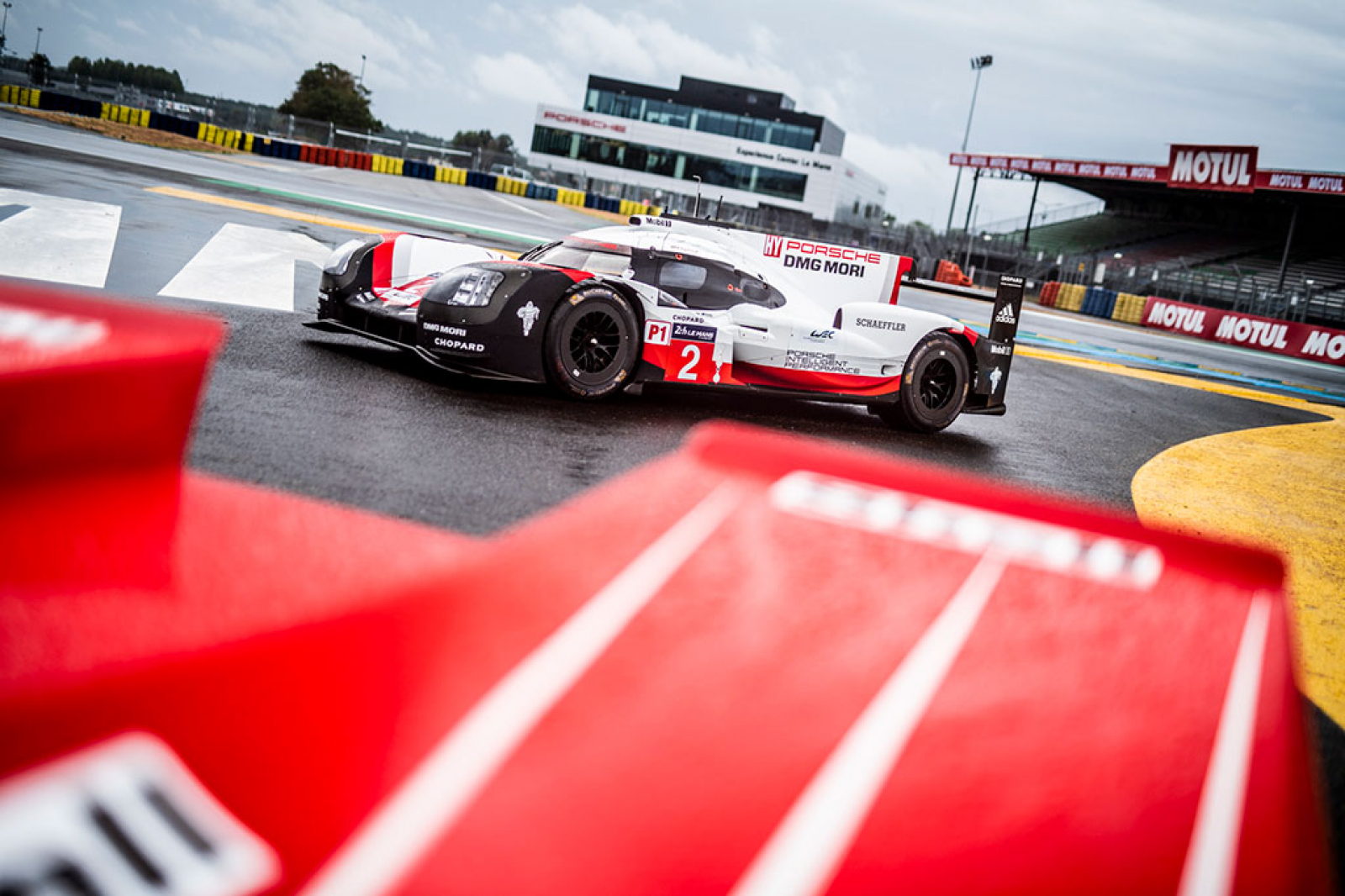McLaren Racing to join the Hypercar fray in 2027
McLaren Racing is set to join the Hypercar grid for the 2027 season of the FIA WEC Endurance World Championship, with aspirations of a triumphant return to 24 Hours of Le Mans.
Read the article
24h Le Mans
With 19 victories thanks to six of its most legendary racing cars, Porsche holds the record for most wins at the 24 Hours of Le Mans.
Porsche currently officially participates in the 24 Hours of Le Mans and FIA WEC in LMGTE Pro, and is hoping to make its mark on the race again in the new Hypercar class.
With 19 overall and 108 class wins, Porsche's success at the 24 Hours of Le Mans is unmatched. In honour of the marque's return to the race at the highest level, here is a look back at six of its most iconic racing cars.
Fifty years ago on 14 June 1970, Porsche secured its first overall win at the 24 Hours thanks to the 917 K and drivers Hans Herrmann and Richard Attwood. Nineteen years after its very first participation, the German constructor had finally reached its ultimate goal with the help of one of the most sensational machines to triumph at Le Mans.
Hans Hermann: "In 1969, we came so close to winning, but instead finished second behind the Ford GT40 of Jacky Ickx and Jackie Oliver. That's why we did everything we could to win the following year. The 917 was fast and reliable which is what we needed to win. The team had a very close-knit feel to it. Ferry Porsche (Porsche's founder, Ed.) acted like a father to me basically every day. I decided to end my career after 1970, so you can imagine what that win meant to me." In 1971, Porsche clinched its second victory with the 917 K that was fielded by the Porsche Salzburg team and entrusted to Helmut Marko and Gijs van Lennep.
Dubbed the "racing car of the century," for many fans the Porsche 917 K remains the ultimate competition car despite a relatively short career on the track.

In 1976, thanks to Jacky Ickx and Gijs van Lennep (winner in 1971 with the 917 K), the Porsche 936 became the first turbocharged prototype to win the 24 Hours. The design of the 936 drew from several legendary Porsches, including the 917 and the 911, and was powered by a flat-six turbo engine taken from the 1974 Carrera RSR Turbo. At Le Mans, the car experienced incredible highs and lows: the win for its very first participation in 1976, the win in slow motion after losing a cylinder in 1977, the domination of Renault-Alpine in 1978, the failure in 1979 due to lack of preparation and a third victory for its final appearance in 1981. These extreme ups and downs give the 936 a very special place in the history of the 24 Hours of Le Mans.
The Porsche 962 C first entered into competition in the 1984 IMSA Championship in the U.S. For its first start in the 24 Hours the following year, the car scored the pole thanks to Hans-Joachim Stuck before finishing third overall, and in 1986 and 1987, the 962 C shared by Derek Bell, Al Holbert and Stuck reached the top step on the overall podium. The car had been given a livery in the colours of a British cigarette maker, catching the eye of anyone and everyone, so much so that in 2018, in honour of its 70th anniversary, Porsche painted one of its four 911 RSRs in LMGTE Pro blue, white, red and gold. Four-time Le Mans winner Derek Bell: "The 936 was the most stunning car and it will never be forgotten. It had an incredible ground effect. The turbo engine needed a great deal of cooling. When we would let up on the accelerator or went below 300 kph, flames would shoot out of the exhausts and it made for some extraordinary images. We had a 3.2-liter engine that developed almost 800 hp in qualifying."

Ferry Porsche described the 911 as follows: "The 911 is the only car with which one can go on African safari, run the 24 Hours of Le Mans, head to the theatre or drive the streets of New York." The car – first seen at the race in 1966 – is and always will be a star.
In 1998, Porsche fielded two 911 GT1s fundamentally transformed from those entered two years earlier. To take on Toyota, BMW, Mercedes and Nissan, the 911 GT1-98 was built around a carbon chassis, a design element the German marque was using for the first time. The race was merciless to Mercedes and BMW who were forced to retire after two and six hours, respectively. The 66th edition then turned into a German-Japanese duel between the Porsche 911 GT1-98 and the Toyota GT-One. After a gearbox failure for one of the Japanese cars, the #26 911 GT1-98 driven by Laurent Aiello, Stéphane Ortelli and Allan McNish won the race ahead of the #25 sister car shared by Wollek/Müller/Alzen. Porsche was able to celebrate its 50th anniversary by winning the 24 Hours of Le Mans for the 17th time.
The Porsche 919 Hybrid is the most complex racing car ever designed by the German constructor. Though it has been modified in some ways over three seasons of racing, the technical solutions developed by Porsche's engineers have remained the same. A turbocharged gasoline engine at the rear and an electric motor generator at the front were combined with two energy recovery systems to recharge the batteries via exhaust gases and kinetic energy from braking.
The 919 Hybrid's first participation ended with a retirement only an hour and a half from the end of the race. But in 2015, 2016 and 2017, the Porsche team not only won the 24 Hours, but also earned the Driver and Manufacturer titles in the FIA World Endurance Championship. A hat trick was added to Porsche's already outstanding track record at Le Mans.

Don't miss the follow-up to this story, Key players in Porsche's success at the 24 Hours of Le Mans, tomorrow!
PHOTO (Copyright - Rémi Dargegen/Porsche)